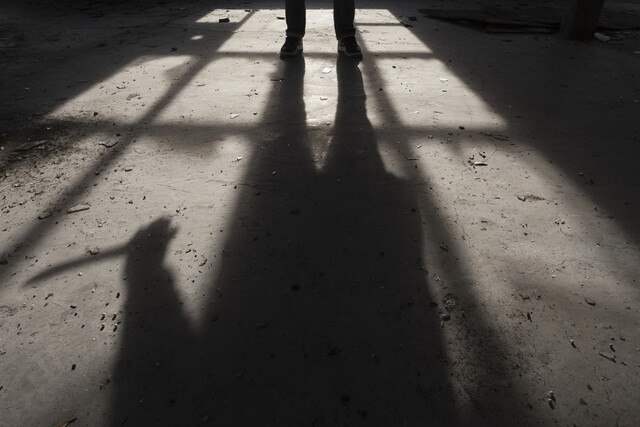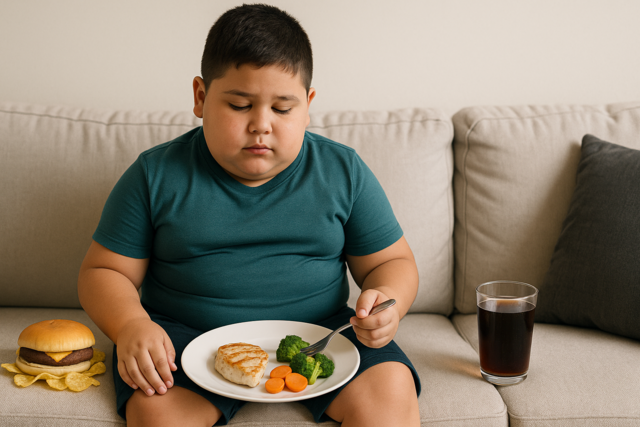First, let's define the term "family." There are several definitions, but for our purposes here, a family is "the basic unit in society traditionally consisting of two parents rearing their children; also any of various social units differing from, but regarded as equivalent to, the traditional family <a single-parent family>." (Merriam-Webster online dictionary). According to Encyclopedia.com, a single parent is defined as a lone or non-partnered parent living with dependent children, either alone, or as part of a larger household (Encyclopedia.com). Even if other children and adults are present in the household, a parent is still considered a single parent if they are not partnered with anyone else in the household. (A family where the parent has remarried or is co-habitating with a steady partner is called a "blended family," according to Merriam-Webster Dictionary online).
Single via divorce
No one is sure exactly when the custom of marriage began, but divorce has a clearer history. Prior to 1857, divorce was extremely rare, allowed only in extreme cases (to men, primarily) and granted by the Catholic Church (only the wealthy and powerful could even hope to do this). The Matrimonial Causes Act of 1857 made divorce more accessible to women, but the burden of proof, such as adultery, had to be coupled with another provable flaw, such as rape or cruelty -- and the possibility of a public scandal for divorcing parties was a real threat.
Things did not change appreciably until 1969, when the Divorce Reform Act was passed, which allows couples to divorce without proving the "fault" of the spouse. Hence the term "irreconcilable differences" � basically, no one person is at fault for the breakdown of the marriage.
Being divorced no longer carries the social stigma it once did, and children are likely to know several children in their school or age group that are also children of single parent homes due to divorce. Despite this, it is still a difficult situation, no matter how well-prepared you and your family members feel.
While divorce still remains the number one cause of single parent family status, our next contender is not far behind.
Unmarried parents
Many single parents have had a child or children with one or more partners outside of marriage. While some couples may elect to stay together, or even marry, many go their separate ways, often leaving one parent to raise the offspring alone. The absent parent may return regularly or periodically to see or care for the child, or they may decline to claim the child, leaving the single parent on their own. It is interesting to note that a common reference to an absent partner that seems to have taken hold is "Baby Mama" or "Baby Daddy," both dismissive-sounding terms. It is unclear what effect such phraseology has on the offspring of such unions.
The percentage of single parents via unmarried/never married partners has increased greatly over the last several years and now rivals "divorce" as the number one cause of single-parent situations.
Single via tragedy (accident, death)
Sometimes, tragic circumstances leave one a single parent. Accidental death, natural disaster, murder, and suicide are all examples of becoming a single parent due to tragedy. In such cases, it is important that the remaining parent cares for both their own, and their child's, or children's, psychological and emotional needs, which may include seeking professional assistance from a child psychologist or medical doctor.
Single via absence (prison, no longer in contact, abandonment, etc.)
Whether you and your child's other parent were married or not, sometimes a parent is completely absent from a child's life for reasons other than death. For example, if a parent is in prison, the remaining parent may or may not elect to allow the child (or children) to visit, particularly if the parent was incarcerated prior to, or shortly after, the birth of the child. Some birth parents abandon their child or children, leaving one parent to pick up the pieces of a child's shattered life.
Abandonment can occur at any time in the child's life, not just at birth. Consider the divorced mother who remarried, retained full custody of the children for many years, then left both her new husband and her children behind when she ran off to the Bahamas with an 18-year old, just as her children entered their pre-teen years. Their father, who had only monthly visitation, was handed two pre-teen boys, practically strangers to him, and expected to cope with his own emotions, as well as theirs. Woefully unprepared, the entire family suffered, and even in adulthood, the children have difficulty reconciling their father's proclaimed love with his actions when they were younger. (Not to mention the abandonment issues caused by their mother's sudden departure and complete disappearance from their lives.)
Some parents pull a "disappearing/reappearing act" with their children, causing confusion and upset. Broken promises, inconsistent behavior, general absence, and inappropriate anger responses on the part of the "in/out" parent can cause great dysfunction in the home and make adjustment and daily life for both the children and the remaining parent difficult. Sometimes, the child will blame themselves for the absent parent's sporadic (or complete lack of) involvement.
Single via other circumstances (i.e. choice, "inheriting" kids)
It is not uncommon in today's world for an individual to choose a single parent lifestyle. Actress Sandra Bullock is an excellent example. During the adoption process (with her then-husband Jesse James), Sandra discovered her husband was unfaithful, and they divorced. Still wanting a child, Sandra opted to pursue the adoption on her own. Today, she and son Louis are a happy family.
Many single women approaching their 40s opt for single motherhood, either using a "sperm donor" (in-vitro fertilization), surrogacy, or adoption. Men also adopt and become single parents; approximately one third of adoptive parents are single parents, and the number of men in that group is rising. (Due to privacy reasons, exact statistics are not available.)
Raising your kid's kids (grandparent)
Most people who become grandparents don't expect to ever be in the "parent" role again � but it does happen. Parental emotional or psychological instability, drug or alcohol addiction, incarceration, or dropping the children off at Grandma's and not returning are all avenues by which a grandparent becomes a parent again. The rights of a grandparent, versus the rights of a parent to their child, differ greatly, so seniors who find themselves in such a situation are well-advised to seek legal advice, particularly if the situation will be long-term, or the child's parent is unpredictable.
Does the behavior of children in single-parent homes differ from their two-parent home counterparts? According to most research, the answer is "yes."
How behavior differs
While it's true that any child can exhibit unacceptable behavior, aggression and behavioral problems, including misbehavior at school, are higher for children in single-parent families versus children in two-parent (intact) families. (While there is evidence children of co-habitating/remarried blended family households also show behavior issue patterns, the correlation of behavior and household change in such families is not as consistent.)
Research suggests that issues of poverty, family instability (how great the effect of the changes), and stress are catalysts for the behavior issues seen in children of single-parent households. Causes and effects overlap and can fuel one another.
Contributors to behavior
About 40 percent of these households are at, or below, the poverty level, and half of those live in extreme poverty (2010). Causes include underemployment, lack of financial support from the child's father, lack of education and resources, and lower overall wages; on average, income for mother-run single-parent households is one third that of two-parent households.
Emotional or psychological dysfunction of the parent, including depression, poor coping skills, or lack of parenting skills/preparedness for parenthood can also contribute to household instability, resulting in children who may act out due to insecurity resulting from an inconsistent or hostile environment.
Also high on the list of contributors is stress. Often, high stress is a result of the impoverished financial conditions of the family, although even single parents whose former spouse or partner is supportive can experience high stress due to changes in residence, lifestyle, and "couple" status. During divorce, many friends and family members may "choose sides," which means the now-single parent may lose friendship and support, along with losing a partner. Studies also suggest that the greater the change in lifestyle, the higher the stress impact on the remaining parent. So if a divorce or tragic loss results in a dramatic lowering of SES (socioeconomic status), the stress may be greater than the stress for an already-impoverished parent who is suddenly raising children alone.
Lack of supervision is another contributor to misbehavior. Some single parents must work long hours at jobs far from home, leaving their children unattended, or in the care of older siblings. No caregiver, no matter how skilled, can replace the influence of a present parent. Unfortunately, many parents have no choice � many states have mandatory "welfare-to-work" programs. Initially designed to engender a sense of personal responsibility in welfare recipients, it frequently has a detrimental, demeaning effect. An extreme example is the case of the Michigan single mother featured in Michael Moore's 2002 documentary "Bowling for Columbine." This single mother was ordered by the state of Michigan to participate in its "welfare-to-work" program, which meant she had to leave the house before her child got up and take an hour-and-a-half bus ride to an upscale Michigan mall, where she worked a low-wage job. Tragically, one morning her 6-year-old son found a gun at his uncle's house, brought it to school, and shot another student.
The "domino effect" of poverty on single-parent household dynamics
The dynamics of a single-parent household are quite different from a household where both parents are present. To begin with, single parents are truly on their own at home � no second parent to help with baths, doing homework, getting kids to bed, or breaking up arguments. A single parent is, as our grandparents might have said, "Chief cook and bottle washer." That's a lot to handle for anyone.
When we become overly stressed, our ability to calmly negotiate problems is impaired. If the stress does not relent and keeps building, most of us lose our temper in some way � yelling, crying, or fleeing, for example. As a single parent, you cannot flee, and crying isn't something most parents will do in front of their child. What is left? Exactly: yelling. Over-stressed parents yell more frequently and more loudly than their less-stressed counterparts. If a parent is already under stress due to their single-parent status, then adding poverty to the mix leaves little time � or personal peace - for calm introspection and responses. As a result, single parents living in poverty tend to yell at their children more frequently, and deal out harsher punishments. Additionally, the children may act out based on behavior exhibited by the parent.
When you're poor, it affects all aspects of your life. Not knowing if you'll have enough food to feed the kids for another week until you get paid. Being late with the rent. Having to tell your child "no" to any extracurricular activity that costs money. Wondering if you'll have enough gas in the car to pick up the children from school and get to work the next morning. Scraping money together so the power doesn't get shut off in the middle of winter. Stress builds, a parent's temper becomes short, and they retaliate harshly when the children misbehave. In turn, the children become more upset and will likely misbehave further. A vicious cycle is started, and it can be tough to break.
Another difficulty families in poverty face is living in an impoverished neighborhood with no access to healthful, fresh food. This is known as a "food desert," and is an astonishingly common situation for those of low SES, particularly in big cities. A food desert neighborhood has no supermarket, only liquor stores or "mini markets." Residents of food desert neighborhoods often have to take long bus rides to find a fully stocked supermarket, and many cannot do so for reasons of health or finances. Additionally, poor single-parent families with multiple children often cannot afford fresh food, nor do they have time to prepare it. When you are late for work, have two hungry children and only $2 in your pocket, chances are you'll order from the "dollar menu" of your local fast food drive-thru, rather than purchase more healthful, yet more expensive and time-consuming food at the supermarket.
To add to the pressure of poverty, welfare recipients live with the social shaming, derision, humiliation by the welfare system, and even criminalization based on their welfare status.
Criminalization of the poor
Say the words "welfare recipient" � what image does that conjure up for you? Likely, it's unflattering. Terms like "welfare queen" and "welfare mama" are commonly associated with welfare recipients. While it is true that most welfare recipients are single mothers, it is unfair and incorrect to assume all welfare recipients are abusing the system. Unfortunately, welfare fraud does occur, and in the tremendous push to "stamp it out," the human equation seems to have vanished. The poor, particularly welfare recipients and the homeless, are discriminated against in courts, given a lesser status of citizenship � more the status of a parolee, than a rights-bearing citizen (Gustafson, 2009). Somehow, in the enthusiasm to rightly eliminate welfare fraud, the welfare system and the criminal justice system have become inexorably intertwined.
Multiple child dynamic in single-parent families
Many single parents notice a change in relations between their children after a divorce. Often, children who previously got along well will begin to fight with, or pick on, one another. Reasons for such behavior include:
-
Anger or upset at the loss of the other parent � In some cases, a child may be placed with the parent they favor least, i.e. a "daddy's girl" who is "forced" to live with Mom. The child may become hostile, sullen, disobedient, or combative. She may fight with her siblings verbally and physically, misbehave at school, or allow her grades to fall dramatically. Teenagers may attempt to run away, often going to the other parent.
-
Modeling behavior exhibited by the parents prior to, or during, the divorce/breakup � It's highly likely that, if tensions and tempers were high in the household prior to, or during, the split, siblings who fight and argue excessively after their parent's departure are modeling what they've seen their parents do. If the breakup was particularly contentious and relations between parents continue to be antagonistic, their children's behavior may not only continue, but escalate.
"Playing" Mom and Dad
Some children may attempt to "play" their parents against one another. Divorce (or separation of long-term parents) can cause a "good cop/bad cop" situation for parents, particularly when one parent has only weekly or bi-weekly visitation. Because time with their children is limited, the "visiting" parent often feels the need to play the "good cop" � allowing children to break rules (particularly surrounding snacking and games), exceed bedtimes, and go without discipline. If the parent is indulgent enough, the children may begin to request special privileges from the custodial parent, then complain, "But Mom/Dad always lets me/us!" This puts the custodial parent in the role of "bad cop" � having to say "no" to the kids for their own benefit.
Outside influences and pressures, and their consequences
Despite the prevalence of single-parent homes worldwide, some stigmas and pressures specific to single-parent households still exist.
For your child, these pressures could include teasing by other students, or being ostracized by peers due to sudden poverty. Other children may ask your child what Mom/Dad "did" to drive the other parent away. If the split is a result of an affair or scandal, rumors may spread, and your child may be subject to ridicule from peers (and sadly, sometimes even from adults). The child may begin to unfavorably compare their situation to those of children who still have an intact family. As a result, their self-esteem may suffer. Often, the child will hide these incidents and feelings from their parents.
























